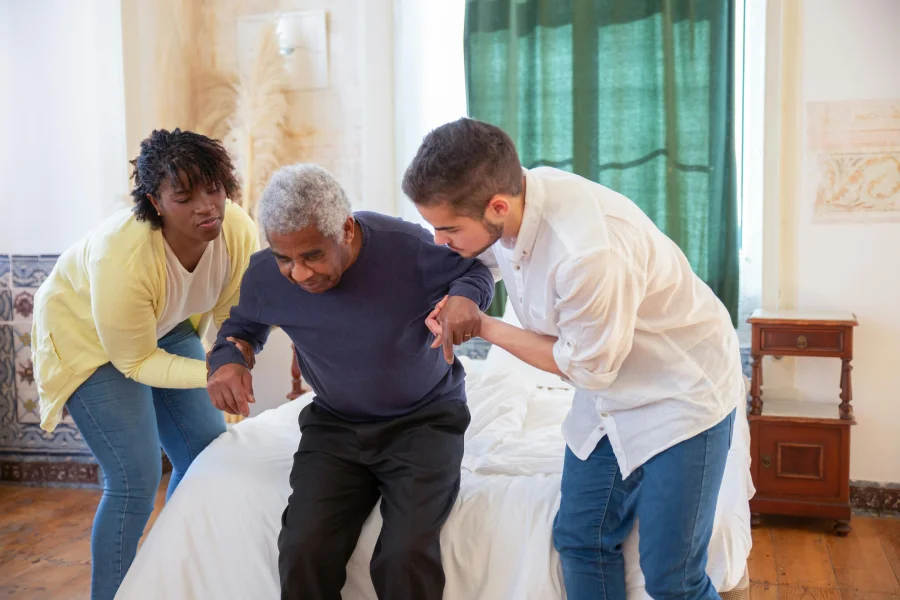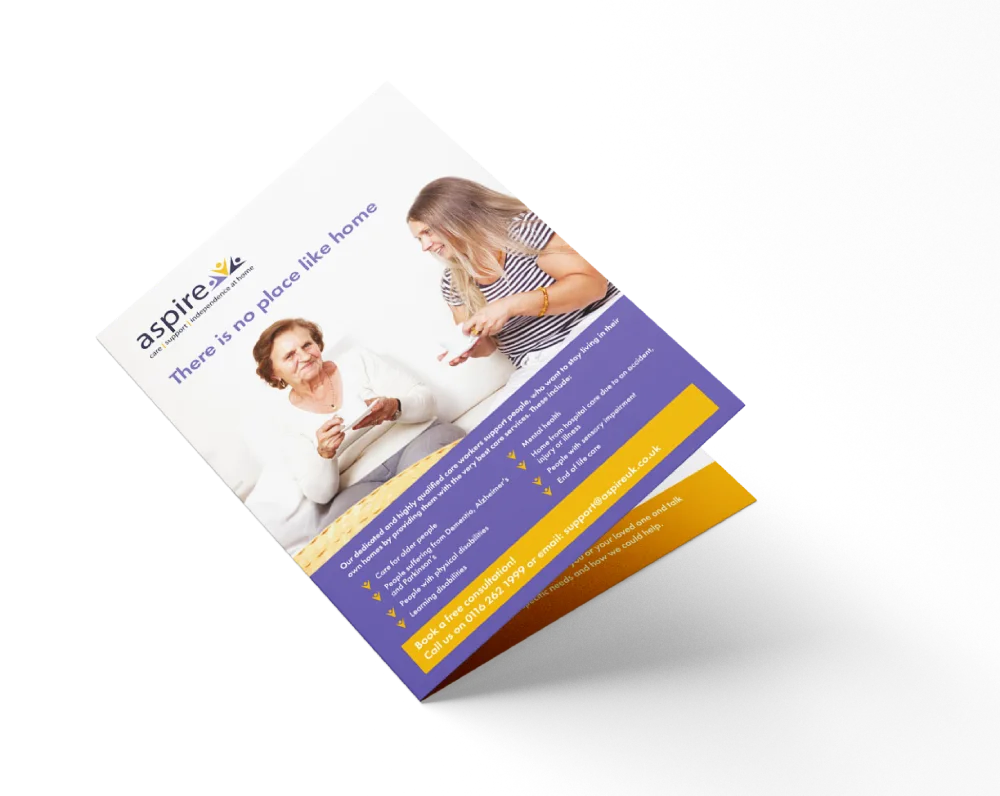People who need home care usually require a certain level of consistent support. This may mean they need help with daily tasks, moving comfortably and safely, or even support with eating.

Your loved one may worry that this level of constant care may hinder their independence. But the right kind of care is determined to also preserve their autonomy and empower their self-sufficiency.
Of course, doing so is a careful balancing act. In this article, we’ll uncover how this balance is achieved, what it looks like, and how the Care Act ensures it.
Need home care support? Reach out to our friendly team at Aspire UK today. With specialist training and genuine care, we’re here to help your loved one live comfortably, on their own terms.

How the Care Act prioritises enabling self-reliance
The Care Act 2014 is a law that introduced significant reforms to care services in the UK. The aim was to streamline and improve previous legislation, to ensure that those in need received the right kind of support.
This Act also includes several different sections that dictate how care should be delivered and what it should look like. Here, we’ll outline just a few of the key ones.
Section 24
In section 24, it is explicitly outlined that the local authority ensuring needs are met must ‘help the adult with deciding how to have the needs met.’
This is to ensure that the adult in question understands the care they are receiving and stays involved in care decision-making.
Section 25
This section outlines what care plans should involve and how they should help those in need. It states that the person who needs care, any current carer they have, and any other authorities they choose must be involved in plan development.
Likewise, it states that all reasonable steps should be taken to achieve the agreement of the person in need of care. This may help them feel more comfortable with support and ensure that it is geared towards their goals, not just their current needs.
Ultimately, these sections ensure that all care is person-centred and led.
What enabling self-reliance looks like
It’s important to be able to identify what balancing support and self-reliance look like. This can help you offer your loved one care that makes them feel confident and in control.
Here are a few key ways a caregiver may support self-reliance:
1. Encouragement
Rather than completing tasks for the person in need immediately, the carer may encourage them to attempt it first. These are usually simple tasks, such as collecting the mail, preparing meals, or watering plants.
The idea is to help your loved one improve their skills and independence while being available to offer support if needed.
For instance, a carer may also encourage your loved one to make their own tea. Not only will this encourage them to move around, but it may also improve their fine motor skills, as well as help them feel accomplished and empowered.
2. Decision-making
When our schedules are busy, we might overlook what our loved ones want. When making decisions about what to do for the day, even if it’s just about meals, involve them in the discussion.
Having their choices listened to can make them feel more secure at home and encourage them to speak up more.
Aspire UK’s reablement care
At Aspire UK, we offer personalised reablement home care. This is care designed to support your loved one while they recover from an illness or injury. It aims to help them regain skills and confidence, all while reducing risks.
Our trained staff use a wide range of strategies to encourage and strengthen your loved ones’ independence, such as:
1. Setting personal goals
All of our care plans encourage our clients to set their own personal, meaningful goals. Our carers can then work with them to achieve them, tailoring strategies to what matters most.
2. Promoting daily routines
Our workers encourage your loved one to build and participate in a daily routine. Not only does this provide structure to their days as they recover, but it may boost their confidence.
3. Encourage safe risk-taking
We want to help your loved one push themselves further, without risk of harm. We may encourage them to try new tasks or branch out, offering attentive support throughout. This helps them feel secure while they strengthen their skills.
4. Adapting the environment
Barriers can often stall progress, but simple changes can help your loved one move forward. For instance, if movement is a struggle, simply rearranging furniture may make it a lot easier. Small adjustments like this might be the difference your loved one needs to live more independently.
Where can I find more help?
Our team at Aspire UK is always happy to offer advice, guidance, and support. But if you want additional help, the Centre for Ageing Better offers valuable resources that are simple, easy to access, and navigate.
This is a UK charity that aims to support better living later in life. They firmly believe that, no matter your age, you should be able to access support, care, and dignity.
Trusted support with Aspire UK
At Aspire UK, we’re here to support your loved one in a way that honours their choices and independence.
Our goal is to empower, not limit, so they can continue living life on their terms. With a fully trained and compassionate team, you can feel confident knowing your loved one is in safe, caring hands.





